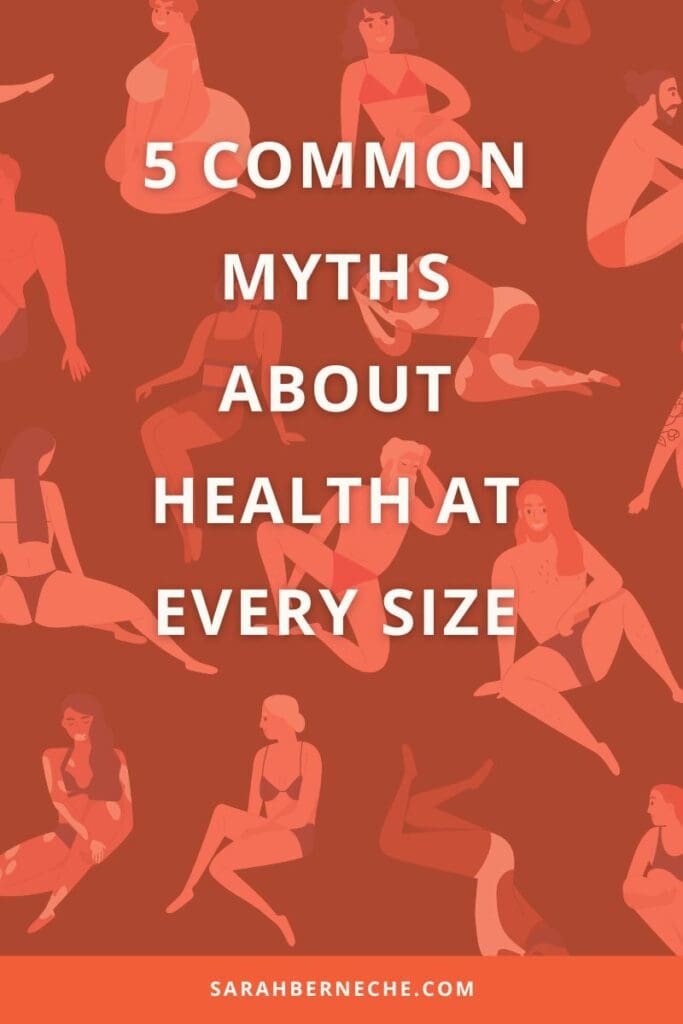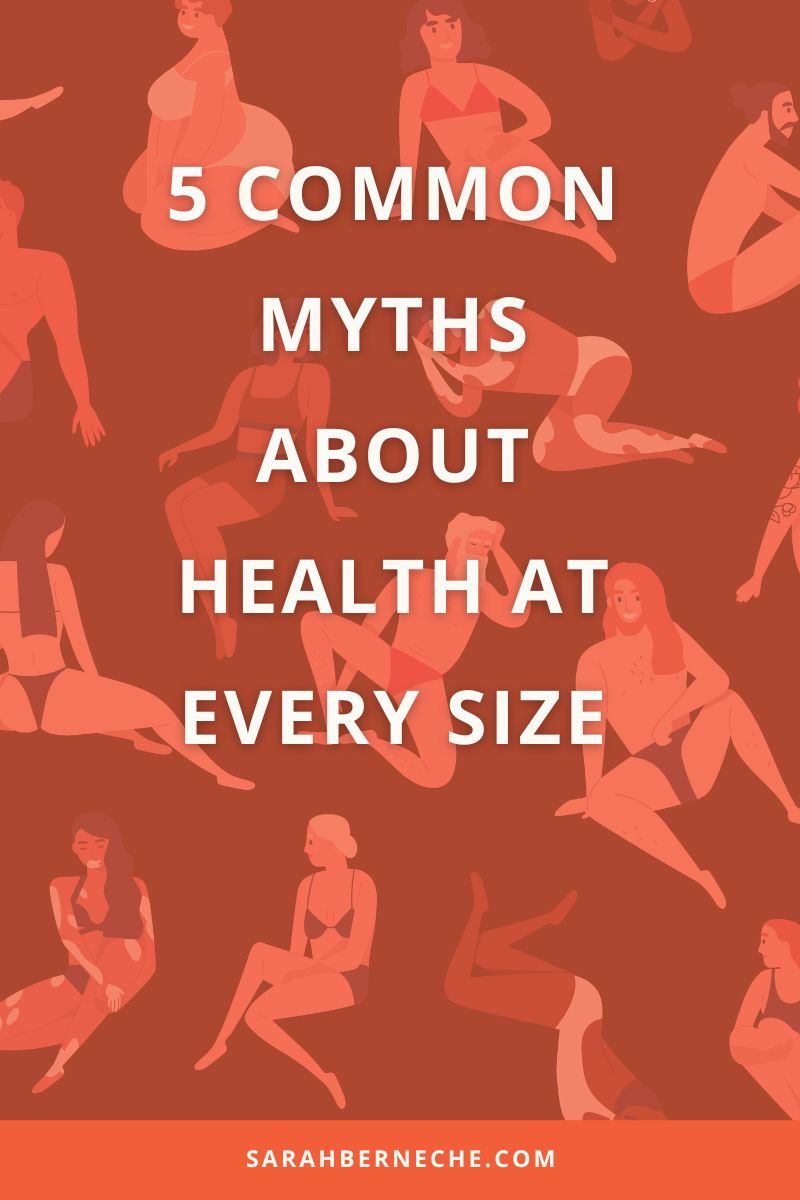Reading time: 4 minutes
Heard the buzz about the non-diet approach or weight-inclusive nutrition, but not quite sure what it actually means? Here’s the short version: I’ve spent the last 9+ years as a weight-inclusive practitioner, and let me tell you—there are a lot of common myths about Health at Every Size (HAES) floating around.

HAES emerged as a bridge between fat activism and the healthcare world. Contrary to popular belief, it’s not about ignoring health. Instead, it’s about shifting the focus away from weight and onto sustainable, nourishing habits like intuitive eating, balanced eating, joyful movement, and self-care practices.
When you hear someone describe their work as non-diet or weight-inclusive, it usually means they’re looking at health through a weight-neutral, person-first lens.
Sounds refreshing, right? But if you’ve ever scrolled through TikTok or Instagram under the #HAES tag, you know: it’s controversial. Even seasoned professionals get it twisted.
I’m here to set the record straight.
Here are 5 common myths about Health at Every Size, debunked.
Common Myths About Health at Every Size: Myth #1: “Health at Every Size means everyone is healthy at every size.”
Let’s clear this up: HAES doesn’t claim that every person is healthy at every weight. That’s not the point.
What it does say is this: health is multifaceted. Your health is shaped by your genetics, your access to care, your environment, and your stress levels, not just a number on the scale.
While the traditional model hyper-fixates on weight, HAES widens the lens to include sustainable behaviours you can practice at any size, like intuitive eating, joyful movement, and self-care.
Myth #2: “HAES encourages people to ignore their health.”
Actually? HAES puts health front and centre—just not in the way diet culture does.
Instead of promoting crash diets and “wellness” trends that flame out fast, HAES supports long-term, sustainable self-care. The focus isn’t on shrinking your body. Instead, it’s on nourishing it.
And yes, it challenges the tired old assumption that thin automatically means healthy. Spoiler alert: it doesn’t.
Myth #3: “HAES is anti-weight loss.”
Here’s the nuance: HAES isn’t against weight loss happening. It’s against making weight loss the goal.
Why? Because research shows that intentional weight loss almost always backfires. Most diets fail within 1–5 years, in that any weight lost is re-gained (often, plus more). 60% of the time, people will end up at a higher weight than when they started. I don’t believe this is a bad thing, but I’m sure it’s not what folks are expecting when they hop on the diet wagon.
And the cycle’s not harmless.
Weight cycling (losing and regaining 5%+ of your body weight over and over) is linked to:
- Higher LDL (“bad” cholesterol)
- Lower HDL (“good” cholesterol)
- Increased risk for heart disease, stroke, and type 2 diabetes
- Gallbladder disease
- Disordered eating and clinical eating disorders (dieting is the greatest risk factor)
- Anxiety and depression
HAES isn’t opposed to weight loss that you lose naturally while engaging in sustainable health habits and behaviours. But weight-inclusive healthcare providers don’t clap for the scale going down, either. Because weight loss? It’s not the point.
Myth #4: “You can’t be healthy in a larger body.”
Truth? Body size does not equal health status. Period.
People in larger bodies can have excellent labs, move regularly, sleep deeply, and eat in ways that nourish them. Likewise, thin people can experience chronic illness, nutrient deficiencies, mobility issues, and more. Many people can agree that being thin doesn’t automatically make you healthy. By default, being at a higher weight doesn’t automatically make you unhealthy. As Marilyn Wann said, “The only thing that anyone can diagnose, with any certainty, by looking at a fat person, is their own level of stereotype and prejudice toward fat people.”
Myth #5: “HAES isn’t evidence-based.”
Decades of research demonstrate that weight-focused interventions often cause harm. Conversely, weight-neutral approaches such as HAES lead to better outcomes.
We’re talking improved:
- Blood pressure
- Cholesterol
- Self-esteem
- Body image
- Mental health
And all of that—without the stress and shame of dieting.
Learn More:
- Association for Size Diversity and Health, owners of the Health at Every Size copyright
- Common Health at Every Size Myths
- 5 Health at Every Size Myths
- 5 Popular Health at Every Size Myths Busted
- 4 Common Myths About Health at Every Size
Latest Posts:
- Emotional Eating vs Binge Eating: What’s the Difference?
- Toronto Eating Disorder Services: A Comprehensive Guide to Support, Treatment & Recovery
- Is Binge Eating a Sign You Lack Willpower? (Spoiler: No)
- Why You Binge Eat When You’re Not Hungry
- Five Facts to Know About Binge Eating

Comments +